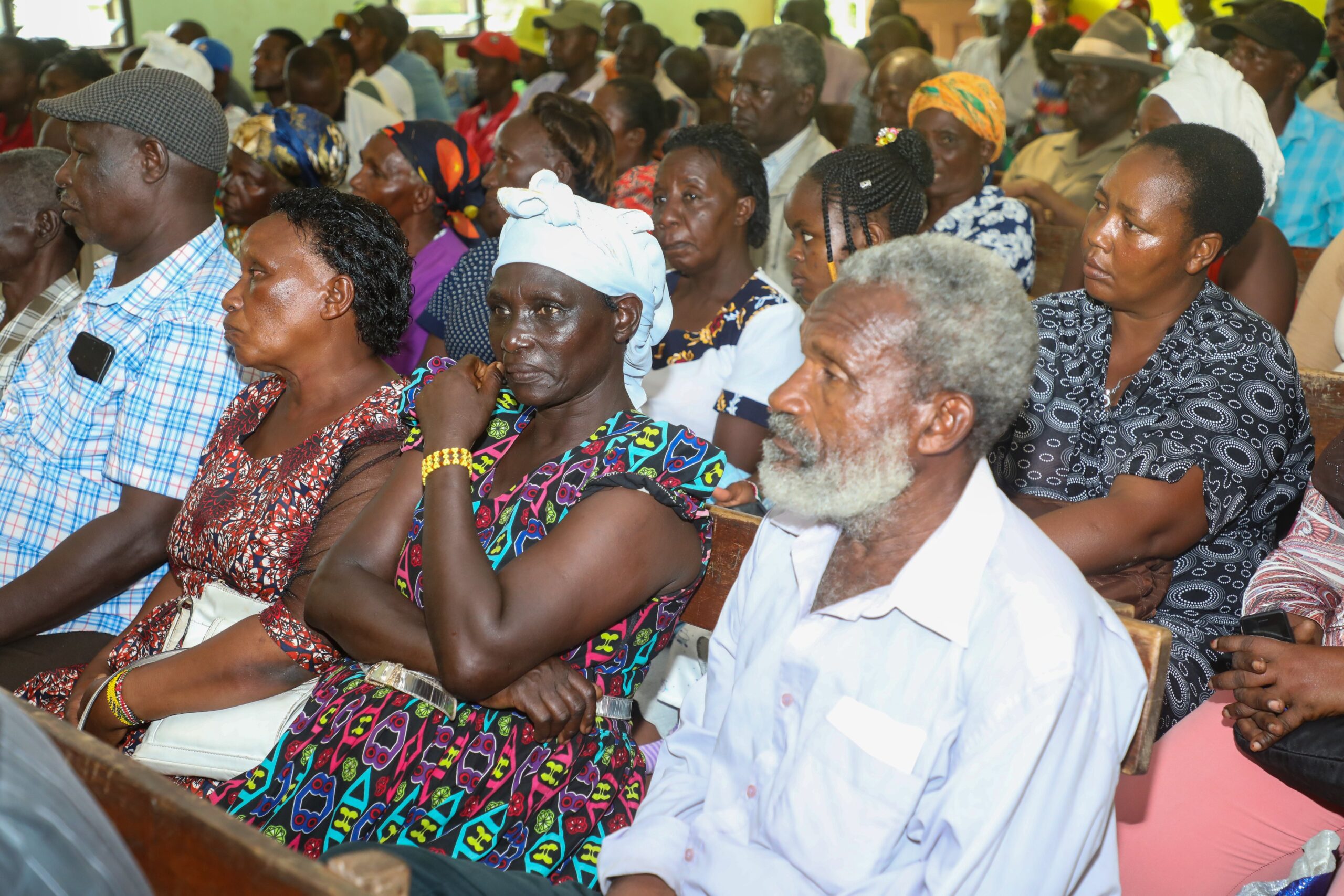By Charles Muchoki
In a momentous event marking a significant stride towards sustainable growth, the Agriculture and Food Authority-Kenya (AFA) orchestrated a pivotal gathering of industry leaders, farmers, processors, and exporters on January 8, 204. The AFA’s Miraa, Pyrethrum, and Other Industrial Crops Directorate hosted a national stakeholder validation workshop in the serene town of Mpeketoni, nestled within the picturesque landscapes of Lamu County. The purpose of this momentous assembly was to discuss and deliberate upon the draft Crops (Bixa) Regulations of 2023.
The bixa industry, a cornerstone of Kenya’s agricultural landscape, has long been a source of livelihoods for countless individuals and a contributor to the nation’s economic growth. However, it has also faced its share of challenges, ranging from sustainability concerns to quality standards and international competitiveness. In this endeavor, stakeholders from every facet of the bixa value chain, including farmers, processors, and exporters, embarked on a journey to shape the industry’s future, guided by the proposed regulations.
The importance of these regulations cannot be overstated. They represent a holistic framework designed to underpin the sustainable development of the bixa industry in Kenya. This framework addresses various pivotal aspects of the industry, ensuring its long-term viability and growth. What sets this endeavor apart is the collaborative spirit that was at the forefront of the discussions. Each stakeholder’s perspective was carefully considered, creating a well-rounded approach that promises to benefit everyone in the value chain.
The envisioned regulations are poised to usher in a transformative era for the bixa industry in Kenya. Here’s how each key player stands to gain:
Farmers: At the very core of the bixa value chain, farmers are set to benefit immensely from the proposed regulations. They will receive enhanced support and direction, equipping them with the knowledge and resources needed to adopt sustainable farming practices. This, in turn, will translate into improved yields and livelihoods, as well as a brighter future for their families and communities.
Processors: Processors play a pivotal role in adding value to bixa products. The proposed regulations will offer clarity on quality standards, ensuring that processors produce high-grade bixa products that meet or exceed international benchmarks. This commitment to quality will elevate the reputation of Kenyan bixa products on the global stage, fostering greater trust among consumers worldwide.
Exporters: The final link in the value chain, exporters, will enjoy the benefits of a well-regulated system that promotes responsible and efficient movement of bixa products across national borders. The streamlined export process is expected to significantly enhance market access, thereby bolstering revenue and creating new opportunities for expansion and growth.
The collaborative effort of all stakeholders underscores their unwavering commitment to the sustainable growth of the bixa industry in Kenya. By finalizing these regulations, the industry aims to establish a solid foundation for long-term success, where each participant plays a vital role in fostering a resilient and prosperous bixa sub-sector.
As the regulatory framework nears its finalization, the positive impact on farmers, processors, and exporters is anticipated to create a ripple effect that will permeate through every facet of Kenya’s bixa industry. The unity and shared vision among stakeholders promise a bright future for a sustainable, thriving, and globally competitive bixa sector.
Moreover, the significance of this event extends beyond the immediate stakeholders and holds great promise for Kenya’s overall economic development. The bixa industry is not just a collection of isolated actors; it is an integral part of the nation’s economic fabric. The potential for growth in this sector has the power to catalyze broader economic transformation.
As the world continues to evolve and prioritize sustainability and responsible practices, Kenya’s commitment to regulating and advancing its bixa industry positions it favorably in the global marketplace. This concerted effort to embrace sustainable growth aligns with international trends, attracting environmentally conscious consumers and investors.
The bixa industry, often referred to as annatto, has a rich history and cultural significance in Kenya. Traditionally used for its vibrant red pigment and distinctive flavor, bixa has found its way into various culinary delights and even cosmetic products. Its versatility and appeal extend to both domestic and international markets, making it a valuable commodity with untapped potential.
Through these proposed regulations, Kenya seeks not only to enhance the quality and sustainability of its bixa products but also to fortify its position as a global leader in the industry. The collaborative spirit displayed at the validation workshop and the commitment to responsible growth signify a brighter future for bixa in Kenya.
The stakeholders’ unity in their pursuit of sustainable growth in Kenya’s bixa industry is a testament to the nation’s dedication to progress and prosperity. By embracing these regulations and working together harmoniously, the industry aims to write a compelling success story that not only benefits those directly involved but also leaves a lasting impact on the nation’s economy and its global standing. Kenya’s journey towards a sustainable, thriving, and globally competitive bixa sector has only just begun, and the world is watching with anticipation as this remarkable story unfolds.
